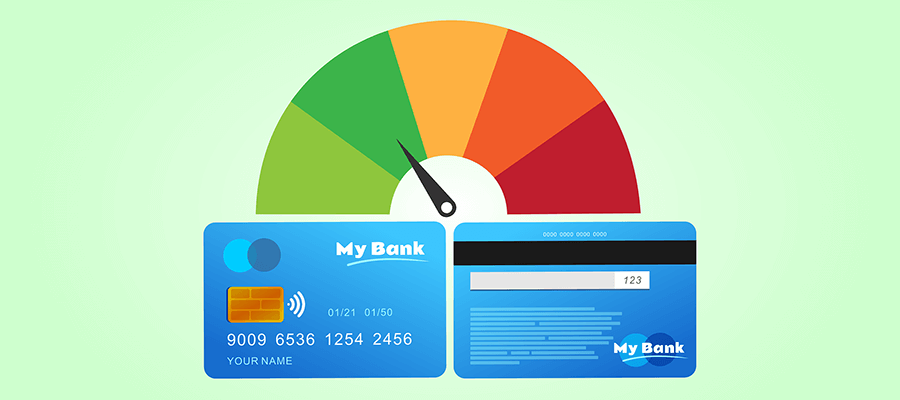5 Ways to Help Boost Your Bad Credit
See also: Understanding and Improving Your Credit ScoreYour credit score is a critical part of your financial world. Good credit is essential when you want to make major purchases like cars or houses. And bad credit can also affect the rates you pay when taking out loans for any reason. So, you need to keep on top of your credit score and do everything you can to push it as high as possible.
Unfortunately, people often find themselves in situations that damage their credit score, and sometimes through no fault of their own. But damaged credit is not the end of the world. There are many steps you can take to rebuild your credit score and restore your financial health.

Know what is dragging your score down
One of the first steps you should take to improve your credit is reviewing and understanding your credit report. Many people do not even understand how much credit they have (remember that one store card you applied for to take advantage of a deal and haven’t used since?). Inspecting your credit report gives you a comprehensive overview of your credit situation. You know how much credit you have and what types, how much you are using, if you have late payments and more.
You can get a free report from each of the three major credit bureaus (Equifax, Experian and TransUnion) once a year. Through April 2022, you can check for free weekly at AnnualCreditReport.com. You should periodically review your credit report, even after you have built your score to the level you want. Doing so allows you to keep on top of potential threats to your score.
Identifying the specific issues that are lowering your score will help you prioritize what you do next. Address the most obvious problems quickly. For instance, if you find errors on your credit report, you should file a dispute with the appropriate bureau.
Pay your bills on time
Failing to pay your bills on time can drastically affect your credit score. Your payment history accounts for 30% of your score. Indeed, a single payment that is more than 30 days late can decrease your score by as much as 100 points.
If you can’t make a payment on time, you should make at least your minimum payment as quickly as possible. The further behind you fall on making a payment, the worse the effect on your score.
Get as creative as you need to be (within reason) in finding ways to make on-time payments. The COVID crisis challenged many people’s ability to pay monthly credit bills. Some responded by jumping into the gig economy and taking advantage of freelancing opportunities, providing them with a flexible income source to keep them on track.

Reduce the amount of credit you use
Credit use - the ratio of your total revolving credit balance to your total revolving credit limit - accounts for up to 30% of your score. You should keep credit use under 30%, and, ideally, under 10% if possible. And you need to consider both your total use rate and your per card rate.
Consider an example where you have three cards: one with a $2,500 limit and a $1,000 balance, one with a $5,000 limit and a $1,000 balance, and one with a $10,000 limit and a $5,000 balance. Your overall credit use is high at 40%, and you have one card with a 40% rate and one card with a 50% rate of use. You need to bring each card down below the 30% threshold.
There is a constant debate about which cards to pay off first: high outstanding balance cards or high-interest cards. If you want to improve your credit score, focus on those with the highest balance until you get your use rate in control. Then you can shift to the high-interest cards to more quickly reduce your debt total.
Paying down your credit should also be an integral part of your overall financial planning strategy. Reducing your revolving credit balance should often take precedence over wealth-building suggestions, such as investing 20% of your income.
Have more than one type of credit...
Variety of credit accounts for 10% of your score, so having and (appropriately) using different types of credit can improve your score. What do we mean by different types of credit? Installment loans such as mortgages and car loans, for instance, as opposed to revolving credit like credit cards.
With revolving credit, you can continually build debt by buying more than you pay off every month. Therefore, your revolving credit accounts paint a clearer picture of how responsibly you use credit. But keeping current with your installment loans shows that you can deal consistently with long-term debt. So, each type of credit impacts your score differently.
You should always avoid overextending yourself with credit accounts. It is more important that you can make payments than that you have a large number of different accounts. And for long-term financial planning purposes, you should consider how you or your family will pay for these accounts in times of crisis. For example, do you have comprehensive life insurance that will help your family pay off joint credit accounts if you pass away?
...but don’t apply for too much credit or apply too often
Most consumers are awash in credit opportunities. Every time you go into a store or buy something online, it seems that it comes with an offer for a new credit card or service. But taking advantage of all of these offers can hurt your score. And it can be particularly risky for young consumers trying to get their credit started but who have little experience managing money.
Whether you eventually are approved for a credit card does not affect your score; instead, it is the act of applying that matters. Admittedly, the impact of new credit applications is small compared to other factors, but the worse your credit already is, the greater the effect will be.

Use cards designed to help you build credit
Recognizing the problems that many people have with strengthening their credit, some banks have begun offering what are known as credit builder cards and accounts. Credit builder cards come in a few different forms. One is simply a low limit, high APR card, where you build your score by making small purchases and establishing a history of on-time payments.
An alternate version uses a secured credit card, where you link a traditional spending bank account with a credit account. This type of credit builder account has several advantages over traditional credit cards, particularly for people who have more difficulties managing their money.
First, in a credit builder account, you set aside money to pay for purchases before you make them. This is the modern equivalent of the classic envelope system of budgeting. You always know exactly how much you have available to spend and you never risk going over your limit.
Second, the bank doesn’t report credit utilization to the credit bureaus, but they do report on-time payments. So, two parts of your credit score improve.
Conclusion
With a little effort and ongoing diligence, you can recover from temporary hits to your credit score. And that same effort can help you avoid any similar problems in the future. The steps you take to repair your credit score can help you build a sustainable financial future.
About the Author
Kate Noether is a PR Specialist, SEO expert and all-round tech enthusiast. Apart from that she enjoys biking on weekends and spending time in nature.
